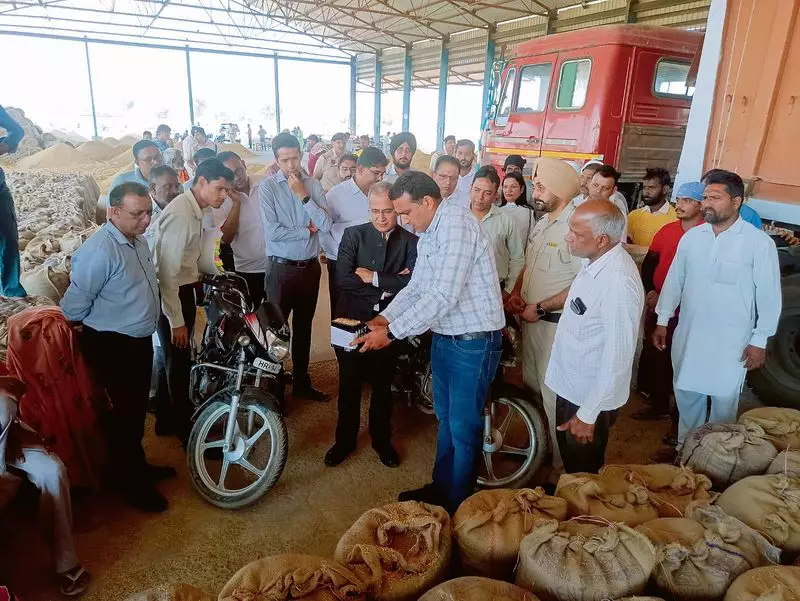
CHANDIGARH: Punjab's agricultural heartland is facing an unprecedented crisis as mandis across the state groan under the weight of nearly 80% of the paddy harvest, while the Central government maintains its rigid procurement norms despite fervent appeals from state authorities.
Mandi Mayhem: The Scale of the Crisis
The situation has reached critical proportions with approximately 132 lakh metric tonnes of paddy already flooding state markets. What makes this scenario particularly alarming is that this massive influx represents just the beginning of the harvesting season, with more produce expected to arrive in coming weeks.
"We're witnessing a perfect storm in our agricultural markets," revealed a senior state government official. "The Centre's unwillingness to relax moisture content specifications and other quality parameters is creating an impossible situation for both farmers and procurement agencies."
The Crux of the Conflict
At the heart of the standoff lies the Centre's stringent quality control measures that state authorities argue are impractical given current ground realities. The Punjab government has made multiple representations to the Centre, seeking temporary relaxation of these norms to facilitate smoother procurement and prevent massive financial losses to farmers.
The state's argument hinges on several critical points:
- Early harvesting due to changing weather patterns has resulted in higher moisture content
- Existing infrastructure cannot handle the current volume under strict parameters
- Farmers face imminent financial ruin if their produce is rejected
- State procurement agencies are caught between Centre's rules and farmers' needs
Farmers Bear the Brunt
Across Punjab's bustling mandis, anxiety runs high among the farming community. Many fear that their hard-earned harvest might be rejected due to technical parameters that don't account for practical farming conditions.
"We've followed all agricultural practices, but nature doesn't always cooperate with government specifications," shared a distressed farmer from Ludhiana. "If our crop is rejected, our entire year's investment and labor will be wasted."
Administrative Gridlock
State officials express frustration at what they describe as a lack of pragmatic approach from the Centre. "We understand the need for quality control, but there must be flexibility during peak arrival periods," explained a procurement agency representative.
The state government continues to engage with Central authorities, hoping for a last-minute intervention that could prevent a full-blown agricultural crisis. However, with each passing day, the pile-up in mandis grows more severe, and farmers' patience wears thinner.
The unfolding situation in Punjab's agricultural sector serves as a critical test case for federal cooperation in addressing farm distress and could have far-reaching implications for food security policies nationwide.






